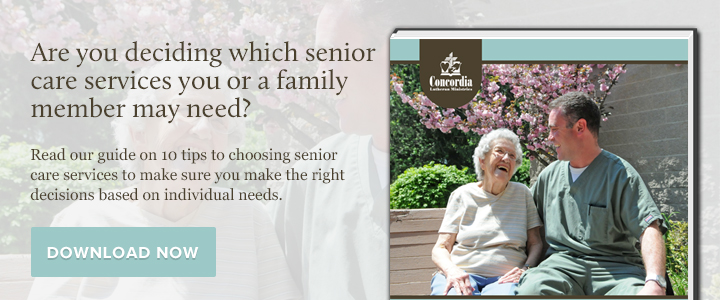Stroke Awareness Month Part 1: Preventing a Stroke

As we age, most of us imagine living our golden years to the fullest extent. Whether that’s traveling the world, spending time with our loved ones or simply reconnecting with old friends, our retirement is meant to be free from stress and worry. While thousands of us are able to live out this dream, it’s not a reality for all, and even the most relaxing retirements can be thrown off course in a matter of moments.
A stroke is caused by an interruption of blood flow, or perfusion, to any part of the brain. Sometimes referred to as a “brain attack,” a stroke can strike at almost any moment. This is especially true for senior citizens, or individuals who have a history of strokes in their family.
Strokes are the fifth leading cause of death in the United States, accounting for the deaths of nearly 130,000 Americans every year. While there is little you can do to change your family history or reverse some of the decisions you’ve made in your past, there are some things you can do to mitigate your risk of a stroke.
Knowing the Signs
When it comes to avoiding a stroke, knowledge is power. Symptoms can strike day or night, during any activity. If you or someone close to you has a history of stroke, you may want to keep a close eye out for these common symptoms:
- Confusion and trouble speaking or understanding other people
- Weakness or numbness of the arm, face or leg
- Loss of vision in one or both eyes
- Trouble walking, dizziness or a loss of balance & coordination
- Severe headache with no known cause
If you ever feel someone may be suffering from a stroke, quick action is key to preventing more permanent damage or even death. If someone close to you shows any of the signs above, it’s important to act F.A.S.T.
F – Face: Ask them to smile. Does one side of their face droop?
A – Arms: Ask the person to raise their arms. Does one arm drift down?
S – Speech: Ask the person to repeat a simple phrase. Is their speech slurred or strange?
T – Time: If you observe any of these signs, call 9-1-1 immediately!
In any instance of a stroke, quick recognition and getting to a hospital right way for proper help and treatment may lead to a better recovery.
Preventing a Stroke
While it is true that some stroke risk factors are out of our control, there are things we can do to help prevent a stroke. One of the easiest ways to lower your risk of stroke is to cut out any activities that promote the narrowing of arteries or lead to higher blood pressure. This includes smoking, substance use, obesity, hypertension, sedentary lifestyle, oral contraceptive use, and heavy alcohol use. Coronary heart disease, heart failure, congenital heart defects, and heart rhythm disorders like atrial fibrillation all also raise your stroke risk.
If you’re looking for ways to take control of your risk, start off by changing what you eat. A diet high in fruits and vegetables and low in saturated fats can help significantly reduce your risk. Regular exercise is also a great way to reduce obesity and hypertension, thus putting you at lower risk of developing blood clots that could lead to a stroke. While diabetes is an independent risk factor for stroke, many diabetics also suffer from hypertension and obesity. Keeping a close eye on your blood sugar and weight are key to reducing risks among diabetics.
Other risk factors can be controlled with proper medication. Aspirin may help reduce your risk of stroke, interfering with your blood’s clotting action. Anti-clotting medications are also prescribed for those with dysrhythmias and other cardiac diseases. Antihypertensive medications can also be used to help reduce your blood pressure.
There is no denying that our chance of a stroke grows greater with age. However, 80 percent of all strokes can be prevented through proper care and lifestyle changes. Keep your risk at a minimum with help from the caregivers at Concordia Lutheran Ministries. Each one of our senior care centers goes above and beyond the standard for healthcare facilities, providing our residents with highly qualified professionals who are dedicated to providing the utmost quality of care. Schedule a tour of any one of our senior care centers today, and discover how our commitment to caring shows in everything we do.
Get Updates From Concordia
There is always a LOT happening at Concordia! Would you like to stay up-to-date with our news and events? Sign up for our monthly e-newsletter here.